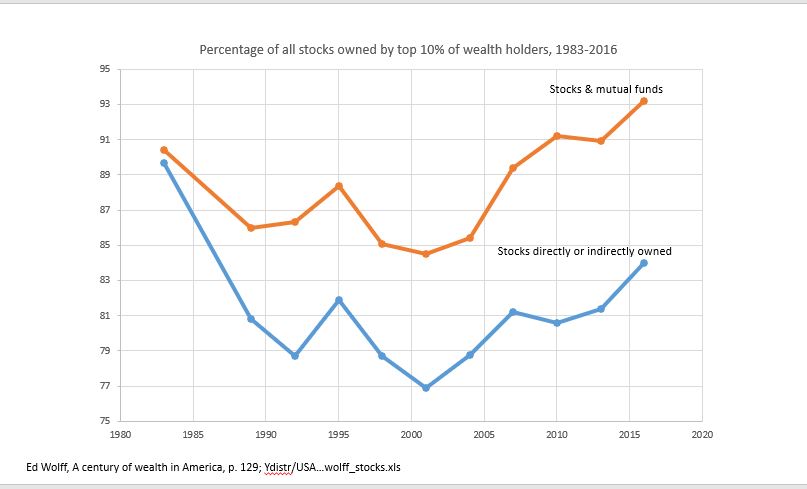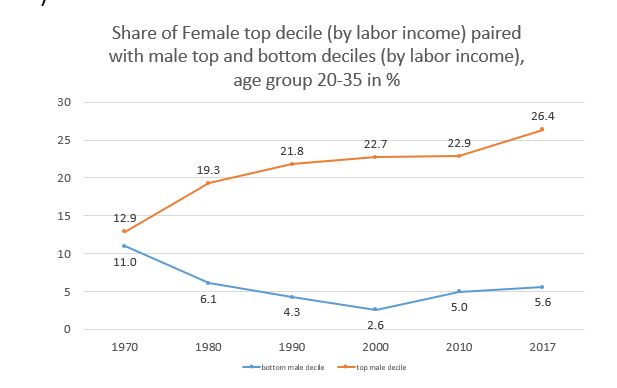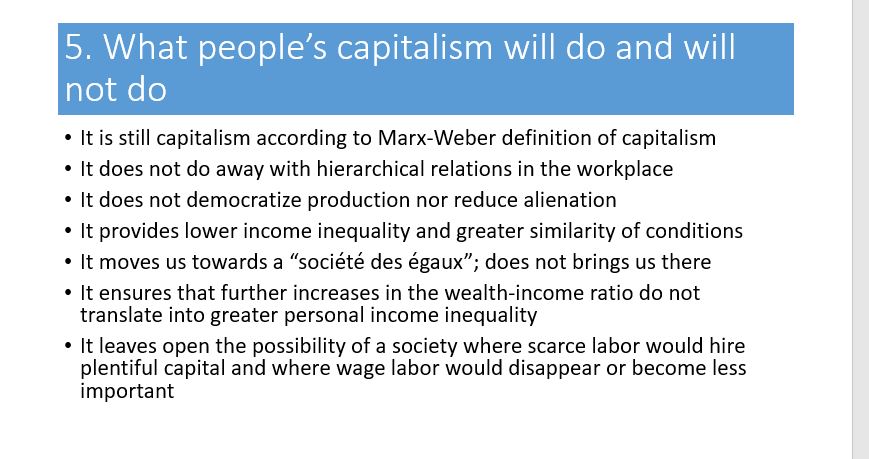
Here are some of the slides from my today's talk at FMM (and also from my "C,A").
These are six systemic inequalities.
These are six systemic inequalities.

Go to No.3. Increasing share of top capitalists who are also top wage-earners (have high labor incomes). USA, 1980-2015. 
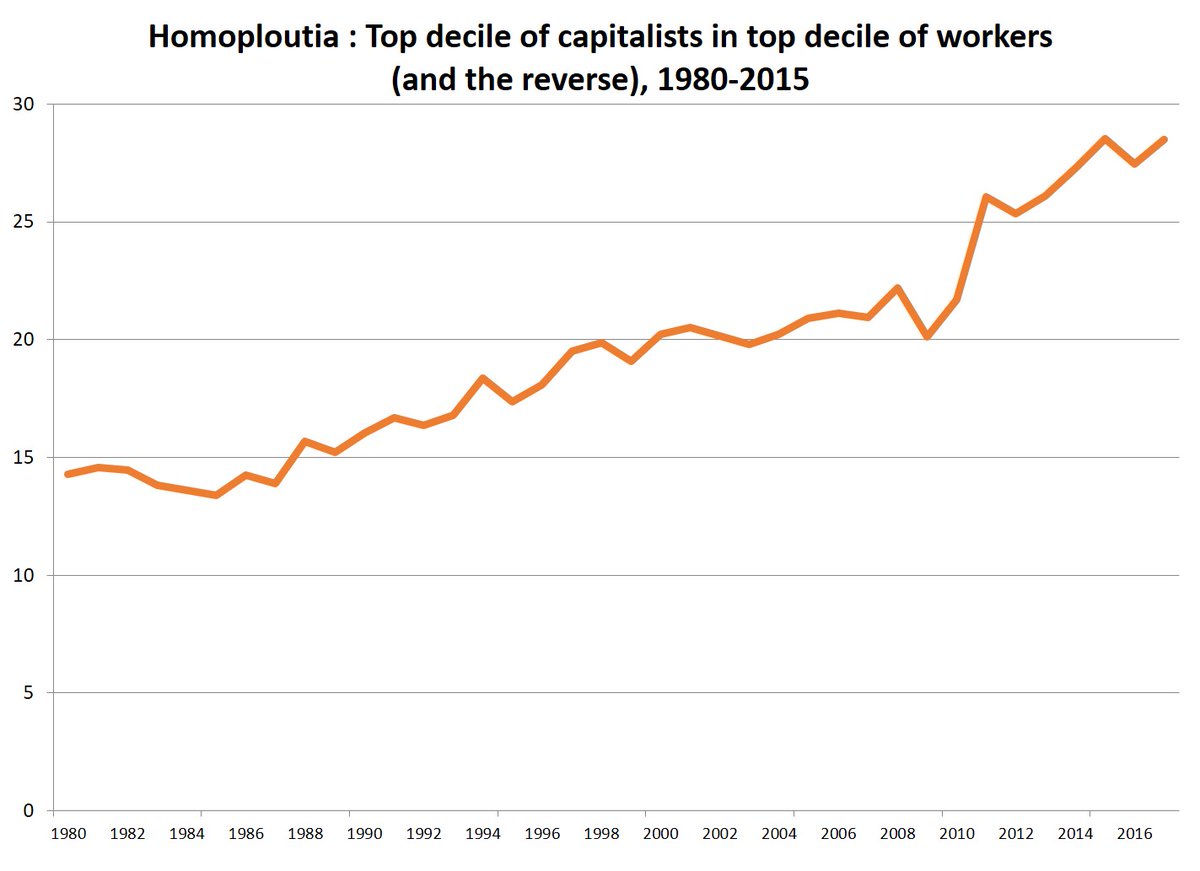
2) High quality public education for all (important that public be of better quality than private so that highest paid jobs go to children from all social groups).
Otherwise, you have a new aristocracy (as now).
Otherwise, you have a new aristocracy (as now).
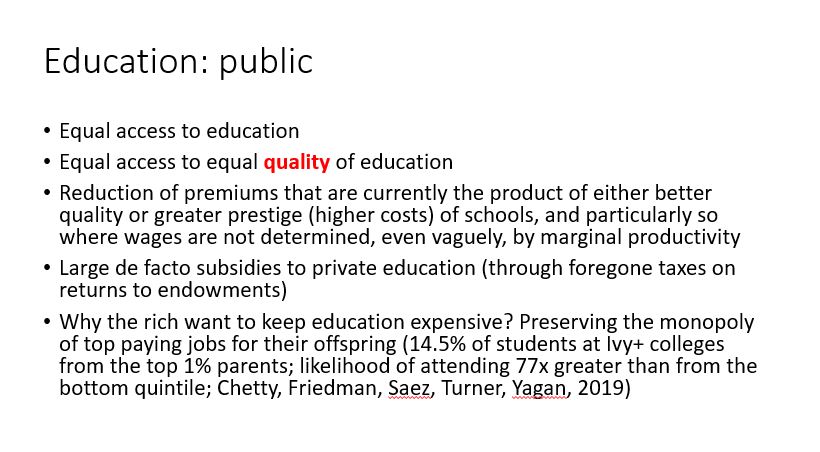
@threadreaderapp unroll
• • •
Missing some Tweet in this thread? You can try to
force a refresh
